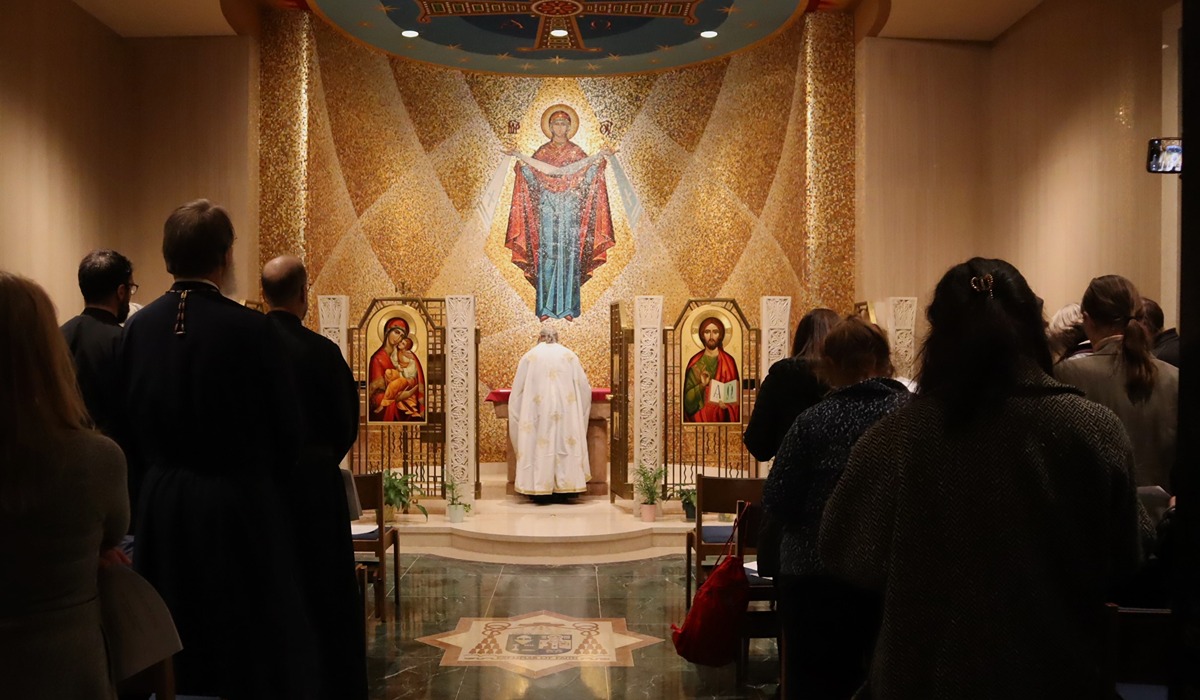

The School of Theology and Religious Studies’ Institute for the Study of Eastern Christianity hosted a two-day interdisciplinary conference on monastic contemplative practices and mental healing.
The March 1-2 gathering, titled "Ascetic Practices and the Mind: Mental Healing in Eastern Christianity," brought together 12 Eastern Orthodox, Roman Catholic, and Protestant scholars from around the world to explore Christian traditions of monastic prayer through historical, theological, psychological, and neuroscientific lenses.
“We hope this conference can connect some of the burgeoning research into neurobiology with Christian traditions on the cultivation of prayer,” said Church History Professor Robin Darling Young, a presenter who played a leading role in organizing the conference.
This is the second in a series of summits on Eastern Christian spiritual life hosted by the Institute, according to its director Father Stefanos Alexopoulos, associate professor of liturgical studies/sacramental theology.
Joseph Capizzi, dean of the School of Theology and Religious Studies, gave welcoming remarks to the over 130 in-person attendees and the hundreds of online viewers who joined over the weekend’s events.
“From its beginnings, the University cultivated the study of Eastern Christianity,” said Capizzi, noting that the very first faculty member hired made the University a center for resources and scholarship related to the Christian Orient. “I’m deeply grateful that we are able to continue this long tradition of serving all of Christian churches through research, scholarship, and student formation.”
The exploration began with an overview of the monastic tradition including its sources in Second Temple Jewish literature and an analysis of the medical practices that influenced renowned monastic thinker Evagrius of Pontus. Mount Athos scholar-monks shared insights into contemplative practice informed by their personal experience as members of ancient monastic communities. Three University faculty discussed prayer among Carmelites, within the East Syriac tradition, and the Eastern Christian sources for St. Thomas Aquinas' ascetic writings.
Speakers on the second day shared insights from the intersection of therapeutic practice, neurobiology, and trauma therapy in a clinical setting. Discussion topics included a survey of the state of scientific research into Christian meditative practices and how Patristic anthropology finds numerous points of agreement with modern medicine’s understanding of the human mind. The final speaker explored contemplative practice beyond the monastery by drawing on lessons learned from the popularization and secularization of Buddhist traditions.
The conference concluded with two workshops led by an iconographer and an Orthodox laywoman. The first workshop provided hands-on instruction on writing an icon of the face of Christ. The second, held in the Byzantine Chapel of the Basilica of the National Shrine of the Immaculate Conception, guided participants through stages of contemplative prayer.
The presentations will be adapted for publication in a volume for The Catholic University of America Press series Studies in Eastern Christianity.
The conference was made possible through the generous support of the George and Judy Marcus Foundation and the Roberta L. Tsempales in memory of her husband George Tsempales.